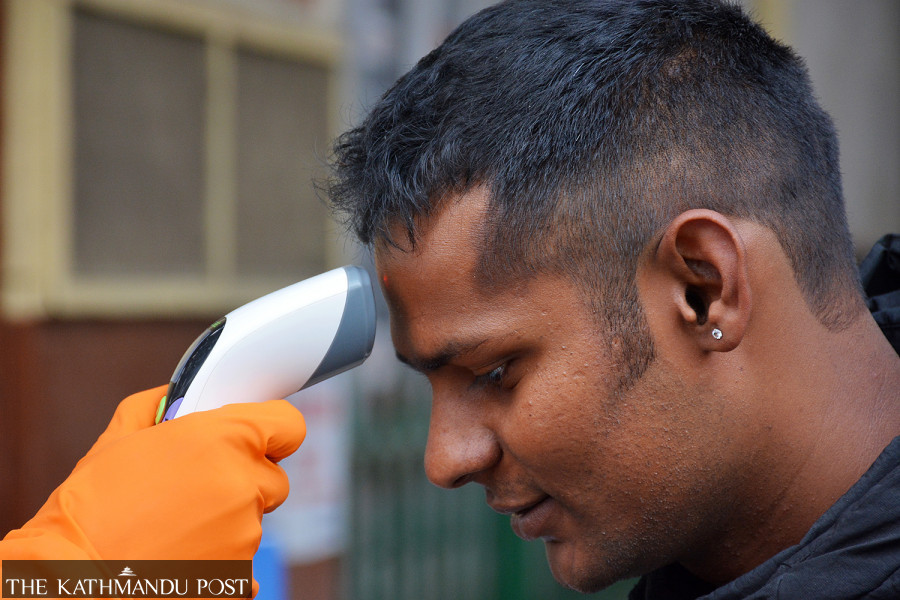Health
Covid is on the wane, but there are several other deadly diseases
Nepal’s current progress in the health sector is similar to the situation in 2008, meaning that the progress made by the country in the 14 years has been lost.
Arjun Poudel
The Omicron threat has waned, bringing a huge sigh of relief.
The Health Ministry said 275 people tested positive and one died of Covid-19 in the last 24 hours.
While coronavirus cases and deaths have come down, experts say there are other various causes that lead to deaths in Nepal and those should not be ignored, as the focus for the past two and a half years has been diverted to dealing with the pandemic.
“We don’t know the current situation,” said Dr Sagar Rajbhandari, former director at the National Tuberculosis Control Center. “The situation has worsened further due to the pandemic and we are at risk of losing the progress made through decades of investments and hard work.”
As many as 46 people used to die every day from tuberculosis in Nepal according to the National Prevalence Survey of Tuberculosis, carried out in 2018-2019 with technical assistance from the World Health Organisation.
And no one knows about the current situation, as no such study has been carried out since then.
Officials say new case findings have declined by upto 60 percent during the pandemic, drug resistance tuberculosis and HIV have risen many fold further increasing death risk.
Officials at the Ministry of Health and Population concede that tuberculosis is among numerous health issues, which have become further complicated during the ongoing coronavirus pandemic.
Data show that on an average 18 people commit suicide and seven people die in road accidents every day across the country.
Indicators of maternal health, child health, nutrition, family planning, and regular immunisation among others were affected by the pandemic. Study shows non-communicable diseases accounted for 71 percent of the deaths in the country but thousands of patients have been deprived of the treatment and basic health care services during the pandemic.
When the pandemic was at its peak, health authorities even asked patients to seek treatment only if one becomes serious or collapses.
Moreover, vector-borne diseases, water and sanitation problems also make people sick and cause deaths in the country every year.
Officials concede that Nepal's current health progress is similar to 2008, meaning that the progress made by the country in the 14 years has been lost.
Public health experts say that time has come to return to the track and make extra efforts to regain the lost progress.
“It is not possible to retrieve the progress we made by only returning to track,” Dr Sarad Onta, a public health expert, told the Post. “Additional efforts and investments should be made to recover the lost progress and meet the several goals the country has committed to achieve with the international communities.”
But it is easier said than done, according to officials at the Health Ministry.
Although the number of new Covid-19 cases have been declining, infection has not stopped.
Along with the continuation of the services, authorities have to deal with all emerging problems including continuation of vaccination. Health workers, who have been working continuously for years have been exhausted.
Additional resources—financial as well as human–are needed to retrieve the losses and for further progress but due the pandemic, the country is not in a position to pour additional budgets or hire more manpower.
“Time has come to request for extension of the deadline for meeting the targets of the Sustainable Development Goals,” an official at the Health Ministry told the Post asking not to be named, as he is not authorised to speak on the matter. “As we have already gone back on the progress made over the last 10 to 15 years, we need an additional 10 to 20 years to meet the targets.”
Officials said that it is also not easy to get grants to invest in the health care sectors with the country set to move up to the low-middle income country.
“Pandemic has affected almost all sectors including the health sector,” said Dr Bibek Kumar Lal, director at the Family Welfare Division. “We have to make extra efforts, invest additional resources to retrieve the losses caused by the pandemic, and yes achieving SDG targets is not so easy.”
Experts say, the authorities cannot escape from the responsibilities and commitments under the pretext of the pandemic. They say that even if the challenges are huge, the country should make sincere efforts to fulfill the responsibilities and commitments.
“Several indicators of health and others have been affected by the pandemic,” said Onta. “We cannot afford to remain idle as serious efforts are needed for regaining the lost progress and meeting the targets and commitments.”




 21.81°C Kathmandu
21.81°C Kathmandu















